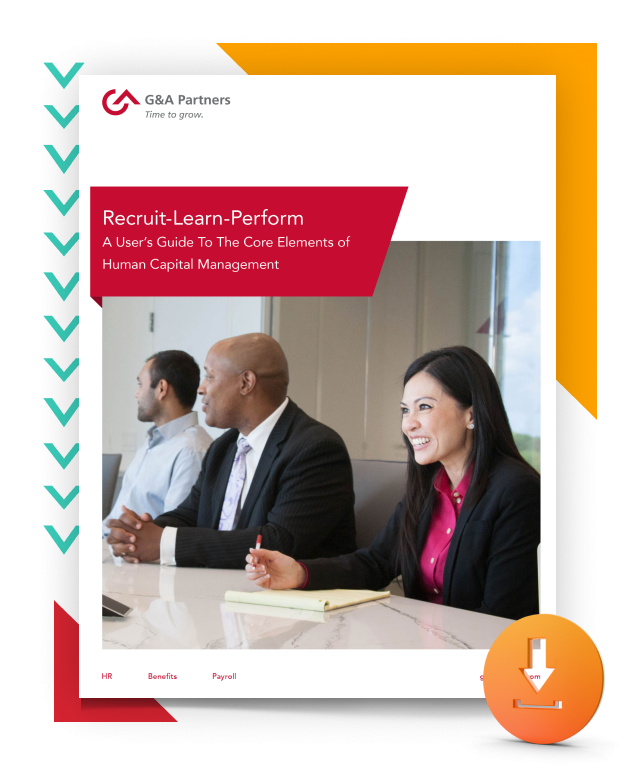Motivated by the fiercely competitive labor market and employees' demands for more time at home with their children, many U.S. employers are choosing to enrich paid parental leave policies.
Topping the list of companies offering expanded parental leave is Netflix—providing up to a year of unlimited paid leave for either parent after the birth or adoption of a child. Other standouts include:
- Microsoft: Provides 20 weeks of paid time away for birth mothers and 12 weeks of fully paid parental leave for all new parents, including adoptions and foster placements
- Adobe: Offers six months (182 calendar days) of paid leave for the birth of a child, which can start up to 30 days before the baby's due date
- Google: Recently announced an expansion of parental leave to 18 weeks for all parents (from 12 weeks) and 24 weeks for parents who give birth (from 18 weeks)
It's not only tech giants offering expanded paid parental leave benefits. For example, American e-commerce company Etsy boasts an impressive policy that provides 26 weeks of fully paid parental leave for all genders for birth, adoption, or fostering a new child and adoption or surrogacy reimbursement. And Kobie Marketing, a small loyalty marketing company with less than 300 employees, offers up to 12 weeks of paid leave for the birth parent and three weeks of bonding leave for the non-birth parent.
#ShowUsYourLeave Goes Viral
According to Digiday’s “Paid family leave is exacerbating the gender pay gap’: Nearly 500 companies pledge transparency around paid parental leave as talent war looms” by Kimeko McCoy:
Kobie and approximately 500 other companies recently posted their company’s paid parental leave policies on LinkedIn as part of the viral #ShowUsYourLeave social media campaign—created by media company theSkimm. The hashtag campaign initiative also features on Twitter.
Building on the campaign, theSkimm launched a public-facing database that includes the parental leave policies of 480+ companies of all sizes. "We created this database to help provide transparency when looking at different career opportunities and support our audience with the information they need to advocate for change within their own companies," say theSkimm's co-founders and co-CEOs, Carly Zakin and Danielle Weisberg.
Paid (and Unpaid) Parental Leave Laws
U.S. law does not require companies to provide paid parental leave. Only ten states (and the District of Columbia) have family leave (PFL) programs, including California, Massachusetts, New Jersey, New York, Rhode Island, Washington, the District of Columbia, Connecticut, Oregon, Colorado, and Maryland, according to the Bipartisan Policy Center's "State Paid Family Leave Laws Across the U.S."
The federal Family and Medical Leave Act (FMLA) of 1993 requires covered businesses with 50 or more employees to provide 12 weeks of unpaid, job-protected leave
for childbirth, newborn care within one year of birth, and care for a child placed with the employees for adoption or foster care within one year of placement. The Build Back Better Act proposes a national paid family and medical leave program that would augment the FMLA's current unpaid protections by providing up to four weeks of paid leave for the birth of a child or the placement of a child with the employee for adoption or foster care. It also makes parental leave available to all employed and self-employed workers. The U.S. House of Representatives passed this version of the bill on Nov. 19, 2021, but it is currently in limbo.
Parental Leave Benefits
For many years, employees have been pushing for more comprehensive paid parental leave benefits. Their cause gained momentum during the COVID-19 pandemic when health concerns and workplace disruption caused millions of working parents to seek additional employer benefits that promote a healthy work-life balance—including paid parental leave. In addition, numerous family and workers' rights groups have been outspoken regarding the benefits of offering paid parental leave.
In the short term, paid parental leave has a positive impact on the health of new parents and children, providing new mothers the time they need to recover and allowing both parents time to bond with their child(ren).
In addition, as the competition for top talent heats up, offering paid parental leave helps employers differentiate themselves as they compete for top talent. Companies that offer paid parental leave are often viewed as leaders within their industries.
However, it can prove challenging for smaller and mid-size employers to offer extended parental leave policies like those that Netflix—and other large companies—have adopted, says Bonnie Scherry, Director of Corporate HR for G&A Partners.
Scherry said several in-demand family-friendly benefits could help companies compete for (and retain) highly-skilled employees. These include:
- Flexible scheduling and remote work opportunities
- Family wellness benefits
- On-site childcare
"It's reassuring to know that if you need to stay home with your child, your employer understands and lets you have that time to care for your child," Scherry said.
G&A Partners offers access to HR experts with years of experience helping businesses develop their employees, improve their workplace cultures, implement new HR processes and procedures, and more. Schedule a consultation with one of our trusted business advisors to learn more.


